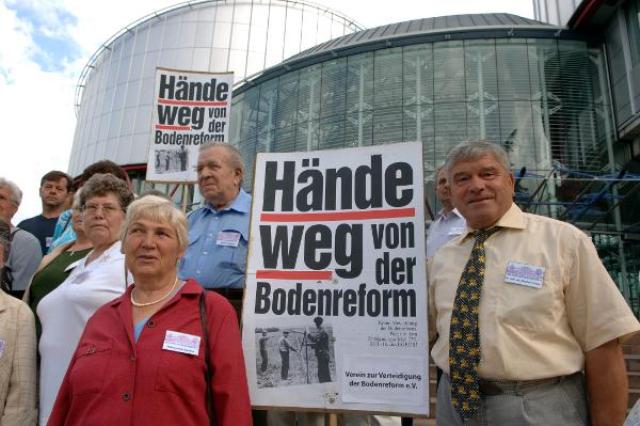Source

Source: picture-alliance/ dpa/dpaweb (c) dpa
Shortly before the first free elections in March 1990, the GDR Volkskammer enacted a new land reform law: the “Law on the Rights of Owners of Land Acquired under Land Reform” [Gesetz über die Rechte der Eigentümer von Grundstücken aus der Bodenreform], also known as the Modrow Law. It abolished restrictions on land acquired under land reform, and essentially made those in possession of the land (“new farmers” and their heirs) the outright owners of it. In July 1992, however, a federal law rescinded the GDR law, and on the basis of this new land, “new farmers” and their heirs were dispossessed without compensation. After an unsuccessful appeal to the Federal Constitutional Court (which ruled that the new provisions did not violate the Basic Law) several heirs turned to the European Court of Human Rights in Strasbourg, since they saw their property rights violated. On January 22, 2004, one chamber of the court initially agreed with the plaintiffs’ claims against the Federal Republic; in the end, however, the court found no breach of property rights and the case was dismissed on June 30, 2005. The expropriated landowners' signs read: "Keep your Hands off the Land Reform!"

Source: picture-alliance/ dpa/dpaweb (c) dpa